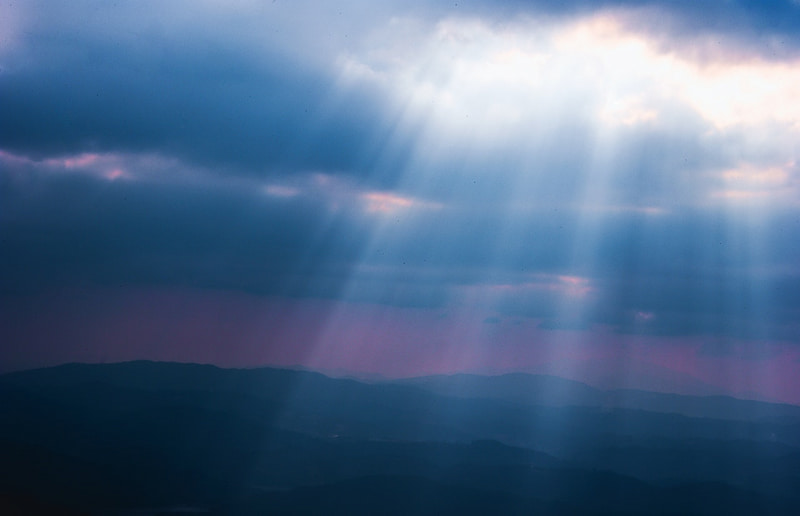Guest writer for Wake Up World
Now, here’s the thing: I’m not a zen practitioner, nor do I necessarily write for an audience of zen enthusiasts (however, if you are one, that’s awesome!). But there’s a certain term that is quite unknown at the time of writing, which I hope comes more into the mainstream:
Makyo.
If you’re a sincere spiritual practitioner interested in truth over illusion, makyo is a term you need to familiarize yourself with.
On the other hand, if you’re into stuff like crystals, angels, cosmic downloads, achieving special states of altered consciousness, and so on, that’s fine, but this article might be a bit confronting or irrelevant to you at this point on your journey.
What is Makyo?

Makyo (or Maky?) is a term in the Zen tradition that refers to the spiritual delusion of clinging and attaching to the mental phenomena that come up during practices like meditation.
The problem with taking special interest in the various hallucinations and visions that arise in our spiritual practice, according to ancient Zen philosophy, is that it causes us to delude ourselves into believing that we’re extra special or have even reached an enlightened state of consciousness. Such assumptions can easily produce a kind of ego inflation that results in problems like spiritual narcissism and spiritual materialism.
In the words of John Daido Loori, who was the abbot of Zen Mountain Monastery,
Sometimes during sitting people have what we call makyo: a vision or hallucination. Other times it’s a smell or sound. Students often think this means they’re enlightened–particularly if the image is related to Zen, like the Buddha sitting on a golden lotus–and they immediately run off to dokusan (a private interview with one’s teacher) to get it confirmed. The teacher will usually listen and then say something like, “Maybe you’re not sitting straight. Sit straight. Don’t worry, it will go away.” It doesn’t matter whether we attach to a regular thought, or to the thought of enlightenment. Whatever it is, it is still attachment.
(Text in brackets my own)
Why Makyo Can Feel Like a Bitch Slap

As we can see, makyo is all about attachment, and in particular, spiritual attachment, which is a trap and pitfall that we can easily fall into on the spiritual path, especially in the West, where being unique and important is seen as a badge of success and honor.
And as we know, the ego is at the root of our suffering.
Of course, it’s important to acknowledge that on a human subjective level, we are special. We all have our own gifts, talents, and aptitudes that differentiate us from others. I’m not denying that.
But on a deeper level, the level that precedes the ego, the realm of Spirit or Consciousness, attachment to any experience that reinforces the ego is a distraction and delusion.
Does the concept of makyo feel like a bitch slap yet?
Makyo is a term and core philosophy that essentially says,
“Hey there! Remember all that amazing stuff you experience during meditation or on retreat – and all those visions of angels, past life recalls, and psychedelic fantasies? Yeah … well, they’re ultimately irrelevant. They’re just experiences that come and go. They’re passing mental phenomena. If you want to find out who you truly are, don’t be attached to them. Okay?”
The Good and the Bad News About Makyo

The good news about makyo is that if, for some reason, you find yourself here on this spiritual path and you do not have special experiences, that’s okay.
Suppose you don’t have amazing visions, lucid dreams, messages from spirit guides, kundalini awakening, extrasensory gifts – and all that jazz … oh well! In reality, none of that stuff matters in the end. It can be helpful and illuminating to have some of these experiences, don’t get me wrong. But if your priority on the spiritual path is to awaken to your True Nature and experience the truth of reality, all that stuff is basically irrelevant.
Certainly, having ascended beings give you special messages might feel funky. It might continue to motivate you, keep you engaged in the spiritual search, or externalize disowned internal guidance in a magical way. But at the end of the day, if you’re not having any of these special experiences, it doesn’t ultimately matter.
That’s the good news – it’s a relief to know that special-looking experiences aren’t ultimately important when all is said and done! So you can drop that burden from your shoulders. You don’t need to keep up with the “in crowd” of “super-special-spiritual people” anymore. Phew!
The bad news is that if you do, for some reason, identify with the super-special-spiritual people crowd and have had a lot of amazing spiritual experiences with which you’re strongly identified, the concept of makyo may inevitably feel threatening.
In reality, there is no “good or bad” news here; that’s just a black-and-white labeling of the mind. Maybe “comfortable and uncomfortable” is better to use here.
And let’s be honest here; there’s a lot of spiritual ego on the spiritual path. I’ve experienced it. You’ve experienced it. We’ve all experienced it.
Crisp and cutting truth is of utmost importance here. Reflect on whether you’re interested in what is true or whether you’re interested in continuing to live under the spell of the mind that has used spirituality to reinforce the very thing authentic spirituality is out to dismantle: the ego. Either way is fine – that’s just how life is choosing to live itself.
11 Examples of Makyo

In Zen, hallucinations are called makyo. It is not unusual for practitioners sitting in meditation for long periods of time to experience makyo. Some people feel like they are levitating, others see visions of the Buddha bathed in light, some hear sounds or voices. This in itself is not a problem. The problem arises when we confuse these experiences with enlightenment … In other words, don’t attach to it.
— Daido Loori Roshi
Let’s get practical here and explore some common examples of makyo that people tend to attach to:
- Receiving “cosmic downloads” or “energetic frequency activations.”
- Visions from a past life or lives.
- Meeting a spirit guide/ascended master/ancestor in one’s dreams or meditations.
- Extraordinary visions or experiences that one has during psychedelics and plant medicines.
- Seeing otherworldly lights, colors, and geometric patterns.
- Visions of angels, aliens, or beings from other realms.
- Experiences of clairvoyance, clairaudience, clairsentience, claircognizance.
- Uncanny “special” messages that one receives during various forms of divination like tarot, pendulum, and automatic writing.
- Hearing sacred names, voices, or conversations.
- Unusual supernatural experiences related to “twin flame” or “soul mate” union.
- Kundalini awakening inspired visions.
If you have any other examples of makyo to add, leave a comment and let me know!
Read more about sneaky spiritual traps.
What to Do With Spiritual Visions, Then?

As we can see, makyo usually emerges from spiritual visions such as an unhealed past life trauma or messages from spirit beings that we then attach to and use to reinforce our egos.
The point of makyo isn’t to say that you should totally ignore special spiritual experiences. If you feel the need to heal some trauma that a spiritual experience has revealed, by all means, do it!
If a spiritual vision gives you comfort, that’s wonderful. Enjoy that comfort and reassurance as much as you can. We all need help during difficult times, and spiritual visions can frequently offer a light in the darkness.
Also, if a spiritual vision or experience gives you helpful guidance and clarity, that’s fantastic. Listen to it and make life adjustments.
But at the end of the day, don’t attach to any of these mental/spiritual phenomena. Don’t make any of it into something that reinforces your ego. Don’t add it to the never-ending smorgasbord of “special spiritual person” titles that we all tend to accumulate.
And if you do, do it consciously. Know that these labels and experiences can never define who you truly are. Wear them like a cloak that can easily be taken on and off.
Remember that the point of spirituality is to unlearn more than learn – to let go more than accumulate. “To die before you die, and find that there is no death,” in the words of Eckhart Tolle. Or, in the words of the sacred text of the Tao Te Ching (verse 48),
In pursuit of knowledge,
every day something is added.
In the practice of the Tao,
every day something is dropped.
How to Avoid Spiritual Delusion (Makyo)

Avoiding spiritual delusion is at the heart of practicing spiritual discernment, which is the sword we carry on our paths to cut through the ample BS that often comes our way.
- Make truth your top priority – Prize self-honesty above all else. When you’re willing to be wrong, when truth is more important to you than being right, then there is humility and the authentic possibility of growth and Self-realization.
- Practice shadow work – Be willing to look in the places that you avoid internally. What makes you reactive? What triggers you and why? What negative qualities are you projecting onto others and disowning within yourself? Find this out. Our Shadow Work Journal can help.
- Ask others for their input (or pay attention to what they point out!) – Having a private and discerning spiritual teacher who can point out where you’re going wrong isn’t accessible to most people in the West. So, instead, ask trusted friends and loved ones for their input. Ask where you might be deluding yourself. But in reality, all you often need to do is notice what people say about you or how they react to your behavior. Do you push back against you? What flaws do they point out? What criticism do they have? Listen up and take it all on board. Don’t delude yourself into being the “untouchable spiritual person who has it all figured out” because that’s a lie.
- Get a therapist or a grounded spiritual guide – If getting a therapist or guide is reasonable and accessible to you, do it! You’ll likely find that it’s one of the most illuminating experiences to have your behavior mirrored back to you in a safe container. Talk with the therapist or guide, notice their feedback, and take time to integrate it into your spiritual path. If you want an accessible and ongoing form of shadow work support on your journey, you might be interested in our weekly Shadow & Light Membership.
If you have any other recommendations, I’d love to hear them below in the comments!
Final Words
Makyo is a word that literally means “realm of demons/monsters” in Japanese, and I love this imagery because it shows how important this concept is and how it ties in with the practice of shadow work.
Attaching to any experience, no matter how magical or enlightening, keeps us stuck in the realm of demons and monsters, aka., the domain of the ego that is the source of all division, hatred, and violence in this world.
However, with honesty, sincerity, and a commitment to discovering who we truly are beyond passing experience, we can move out of this snare and find the ever-present freedom, clarity, and peace that is our birthright.
What’s your experience with makyo? I’d love to hear below in the comments!
About the author:
Aletheia Luna is a prolific psychospiritual writer, author, and spiritual mentor whose work has touched the lives of millions worldwide. As a survivor of fundamentalist religious abuse, her mission is to help others find love, strength, and inner light in even the darkest places. She is the author of hundreds of popular articles, as well as numerous books and journals on the topics of Self-Love, Spiritual Awakening, and more. See more of her work at lonerwolf.com.
This article, How to Ground Yourself (12 Powerful Techniques), was originally published on lonerwolf.com, reproduced with permission.

If you've ever found value in our articles, we'd greatly appreciate your support by purchasing Mindful Meditation Techniques for Kids - A Practical Guide for Adults to Empower Kids with the Gift of Inner Peace and Resilience for Life.
In the spirit of mindfulness, we encourage you to choose the paperback version. Delve into its pages away from screen glare and notifications, allowing yourself to fully immerse in the transformative practices within. The physical book enriches the learning process and serves as a tangible commitment to mindfulness, easily shared among family and friends.
Over the past few years, Wake Up World has faced significant online censorship, impacting our financial ability to stay online. Instead of soliciting donations, we're exploring win-win solutions with our readers to remain financially viable. Moving into book publishing, we hope to secure ongoing funds to continue our mission. With over 8,500 articles published in the past 13 years, we are committed to keeping our content free and accessible to everyone, without resorting to a paywall.










